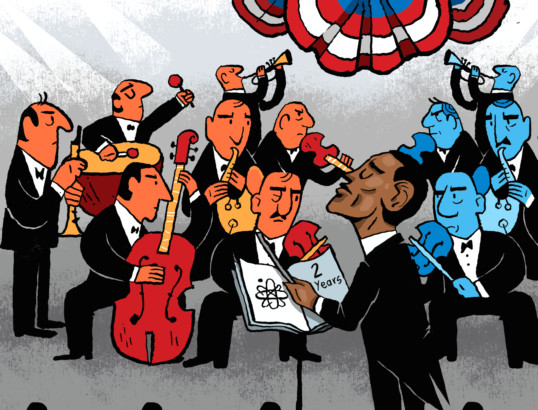
The US holds landmark ballots today that will see elections to the entire US House of Representatives, one-third of the US Senate, 38 state governorships and 46 state legislatures. The House will very likely remain in Republican hands and polls indicate the party could also win the Senate too for the first time in some eight years. The battle for the Senate could be close, however, and overall control of the 100-member chamber may be decided by just one or two seats. If the result is so exceptionally tight, the final verdict may not be clear till January.
This is because of the potential closeness of the US Senate races in Louisiana and Georgia, where state laws require the winner to secure 50 per cent of the vote. Some polls indicate that no one candidate in either state may get to that 50 per cent threshold today, which will necessitate a run-off election on December 6 in Louisiana and on January 6 in Georgia.
The eventual outcome of the Senate ballot will have a potentially big impact on the remainder of Barack Obama’s presidency, especially on domestic policy. For instance, a Republican-controlled Senate will reduce the White House’s leverage on budget policy. And another government shutdown cannot be ruled out with at least some emboldened Republicans potentially attempting to appease the Tea party base by marching towards further brinkmanship in 2015 and 2016.
However, if Republicans do win the Senate, it will not leave Obama as a complete ‘lame-duck’ as some contend. A common response for politically weakened second term presidents is to focus increasingly on foreign policy where the executive has wider constitutional discretion.
Even here, however, Obama will not have complete latitude for action. His ambition to conclude a comprehensive, nuclear agreement with Iran is one example.
The Republican-controlled House has passed legislation that will levy additional sanctions against Iran, which can torpedo US rapprochement with the country. However, the currently Democrat-controlled Senate has not yet introduced these measures to the floor of the chamber for consideration.
This may change with any incoming Republican Senate majority from January. From Obama’s perspective, current US-Iranian negotiations may need to be concluded in the coming weeks (the current round of talks is scheduled to finish by November 24) to avoid the prospect of any such congressional interference.
While odds are narrowing for the president to reach a final agreement with Iran before the November deadline, Secretary of State John Kerry is engaging in further intensive diplomacy this month. If a deal is ultimately reached, it will consolidate Obama’s broader desire to enhance global nuclear security as part of his presidential legacy.
As well as inter-state nuclear diplomacy, such as that with Iran, the US administration has created the Nuclear Security Summit process to counter nuclear terrorism. Obama has described this menace as the “most immediate and extreme threat to global security”.
Another key element of the president’s desired foreign policy legacy is the Transatlantic Trade and Investment Partnership with the 28 European Union states. This will represent the largest regional free trade and investment agreement in history with the US and Europe accounting for more than 50 per cent of the world’s gross domestic product (GDP).
Separately, the Obama team is negotiating for the Trans-Pacific Partnership with around a dozen countries in the Americas and Asia-Pacific that collectively account for about 40 per cent of the world’s GDP. This free trade and investment treaty is one element of the US pivot to the increasing strategic importance of the Asia-Pacific region. In his final two years in office, Obama is likely to want to strengthen the new governments in Baghdad and Kabul. In Iraq, Washington is leading an international alliance to significantly deplete Daesh’s (Islamic State of Iraq and the Levant) territorial foothold and capabilities. Meanwhile, the US and Nato have recently concluded a new security treaty with the national unity government in Afghanistan, which will see an enduring international military presence in the country in 2015.
Beyond Obama’s presidency, the aftermath of today’s elections will also see increasing attention being focused upon the 2016 presidential election. Key Republican and Democratic politicians from Hillary Clinton to Jeb Bush will be making their final decisions about whether to stand. The Republican presidential race is fluid with numerous state governors, Washington politicians and former office holders likely to throw their hat into the ring. Hillary, in contrast, is the firm favourite for the Democratic presidential nomination should she stand.
Comfortably as Hillary may ultimately win the Democratic nomination in 2016, she could nonetheless face a tough general election contest against the eventual Republican nominee. One of the key factors that will influence Republican prospects of defeating her (should she win the Democratic nomination easily) will be whether, and how quickly, the party can unite around its own candidate, given the potentially large amount of contenders who want to become the 2016 nominee. A divisive Republican race will probably only benefit the Democrats, and potentially be a tipping point, if the contest does prove very tight.
Andrew Hammond is an Associate at LSE IDEAS at the London School of Economics and was formerly US Editor at Oxford Analytica.











